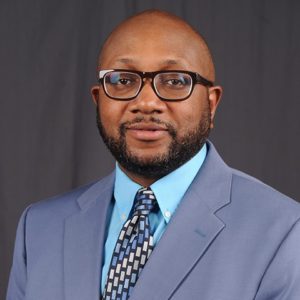Dr. Dwayne Mack was appointed vice president for diversity, equity and inclusion at Berea College effective July 1. Dr. Mack has been with the College since 2003 and has taught American history, African American history and general studies. He currently serves as professor of history and the Carter G. Woodson Chair in African American history. He brings to the position a wealth of knowledge from research and scholarship on diversity, equity and inclusion in higher education, the civil rights movement, interracial education and the gendered past of Berea College. In this position, Mack also will be a member of the Administrative Committee.
“My approach to the vice president role is rooted in my longstanding commitment to collaborative leadership that cultivates diversity, equity and inclusion,” Mack said. “Ultimately, my work is driven by a commitment to social equality, with the aim of generating practices that have a practical impact. Creating a campus climate that is inclusive and diverse, and supports our Great Commitments and Climate Assessment Report will continue to be the most meaningful and rewarding work of my professional career. It is at the core of my research and praxis.”

